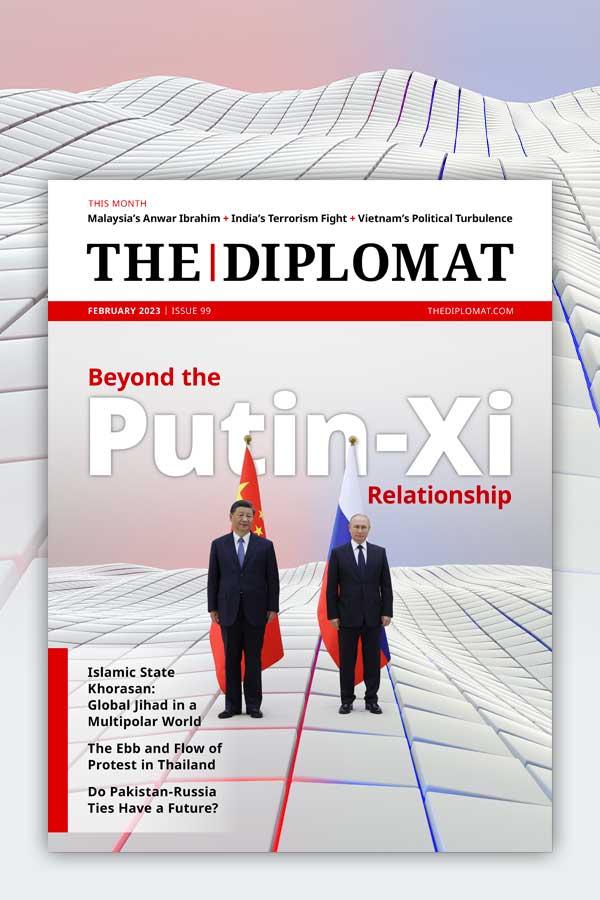| Welcome to the latest issue of Diplomat Brief. This week our top story explores how the Ukraine war is echoing in faraway Uzbekistan, in the form of an unusual Catholic community taking shape in Samarkand. We also have an interview with Husain Haqqani, a senior fellow and director for South and Central Asia at the Hudson Institute and a former Pakistani ambassador to the United States, on the prospects for an India-Pakistan diplomatic breakthrough. |
| Story of the week |  | Society The Ukraine War Echoes in Ancient SamarkandWhat Happened: Uzbekistan is no stranger to the knock-on effects of Russian conflicts. Like other parts of the Russian Empire, and later the Soviet Union, Uzbekistan was used as a dumping ground for “undesirables” – prisoners of war, or just people viewed as untrustworthy due to their ethnicity or religion. Now Uzbekistan is once again seeing an influx of people displaced by Moscow’s decisions – this time those forced to flee Russia’s invasion of Ukraine. Samarkand now houses roughly 1,500 Indian students, 500 of whom were formerly enrolled at the Bukovinian State Medical University in Chernivtsi, Ukraine. Our Focus: Samarkand State Medical University (SSMU), the only medical university in Uzbekistan, is a showcase for Tashkent’s educational reform drive. Thus the medical school was only too happy to boost its international name recognition by taking on foreign students displaced from study in Ukraine. “There is no chance we are coming back to Ukraine,” said Hari, a 23 year old Catholic now studying at SSMU. “Way too dangerous.” The Indian students were welcomed with open arms, but after a harrowing flight from Ukraine, many were looking for a sense of community – and some found it in a Catholic church run by a pair of Argentinian priests. Even Hindu students have made a second home there: “We go to malls and cafes after the mass, sometimes we stay over and Padre Paolo plays the guitar and I play my ukulele,” one told The Diplomat. What Comes Next: The new Indian community in Samarkand might seem to have little to do with the Ukraine war, but they would not be in Uzbekistan at all were it not for Russia’s invasion a year ago. Now, as the unusual refugees of the Ukraine war line up to receive Holy Communion in an old church built by prisoners of war a century ago, they are becoming a part of the city’s diverse community of diasporas. It’s one more small example of how the ongoing war in Ukraine is reshaping communities the world over. Read this story |
| Behind the News | INTERVIEW Husain HaqqaniHusain Haqqani, a senior fellow and director for South and Central Asia at the Hudson Institute and a former Pakistani ambassador to the United States on the prospects for real India-Pakistan diplomacy: “If the Shehbaz Sharif government made a serious offer on the issue of terrorism, he could get the talks he wants. As things stand, there seems to be no forward movement.” Read the interview |
| This Week in Asia | Northeast Asia How Will North Korea Respond to South Korea-US Military Drills?South Korea and the United States will be holding a tabletop military exercise on Wednesday, with much larger ground drills slated for next month. North Korea has made clear its anger with those plans, warning of “unprecedented” countermeasures in a recent statement. Pyongyang made good on its threat by test-launching an ICBM on Saturday. More launches could follow later this week, which would likely spark joint South Korean-U.S. maneuvers in response. Find out more | South Asia Sri Lanka Scraps Local Election PlansSince Sri Lanka’s Election Commission announced local elections were scheduled for March 9, the government has been pursuing a full-court press to shut down the idea. The official narrative is that Sri Lanka can’t afford to hold polls amid its economic crisis; critics at home and abroad allege that the ruling coalition is simply concerned about a shellacking in the first elections since Sri Lanka’s default. With elections now officially called off due to the government’s refusal to provide funding, opposition parties are outraged and more protests could follow. Find out more | Southeast Asia Thailand’s PM Set to Dissolve Parliament EarlyThailand’s Prime Minister Prayut Chan-o-cha this week said that he plans to dissolve parliament before the end of his term, paving the way for an election in early May. The former general’s term ends on March 23, and he announced late last week that he had a “date in mind” for the dissolution. He later confirmed to reporters that this would likely fall early next month. The announcement comes as a new poll on Thais’ preferred prime minister showed Prayut closing the gap with frontrunner Paetongtarn Shinawatra of the opposition Pheu Thai Party, setting up a potentially close-run electoral contest. Find out more | Central Asia A Surprise Summit of Kyrgyz PresidentsOver the weekend, current Kyrgyz President Sadyr Japarov gathered all five of his predecessors – Soornbai Jeenbekov, Almazbek Atambayev, Roza Otunbayeva, Kurmanbek Bakiyev, and Askar Akayev – in Dubai for a meeting. No one is quite sure why Japarov arranged the get-together. It’s not clear all of the presidents, some of whom overthrew the others, knew what they were flying to Dubai for. Atambayev was just last week released from prison and allowed to leave the country, and in 2021 Japarov’s government dropped cases against the country’s first president, Akayev, allowing him to return to Kyrgyzstan for the first time in 16 years. Find out more |
| Visualizing APAC |  | This word cloud shows the most common perceptions Bangladeshis have of the Rohingya, according to a recent public opinion survey. See the full picture |
| Word of the Week | Society عورت آزادیAurat Azaadi, literally “women’s freedom” in Urdu, is the name of an advocacy group seeking to advance women’s rights and safety in Pakistan. Find out more |
|  |



